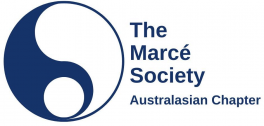The Hong Kong Postnatal Depression Study
Dominic T.S. Lee, S.K. Yip, Danny T.N. Leung, Helen F.K. Chiu, Tony K.H. Chung
Department of Psychiatry and Obstetrics & Gynaecology, The Chinese University of Hong Kong, Shatin, Hong Kong SAR, China
Our understanding of postnatal depression (PND) is predominantly based on research conducted in western populations. It remains unclear if PND is equally prevalent in Chinese societies. Population based psychiatric epidemiological surveys generally show that depressive disorders are less prevalent among Chinese populations. On the other hand, the available evidence so far suggests that the frequency of non-psychotic postpartum depression appears to be rather constant across populations. Two decades ago, Pillsbury reported that there was no PND in Chinese societies and postulated that this was related to the practice of traditional postpartum custom. Subsequently, a few small sample studies attempted to estimate the rates of PND among Chinese women in China, Singapore and Malaysia using partially validated self-report rating scale, yielding varying results ranging from 0 to 18 per cent. Using standardised diagnostic instrument and DSM criteria, the authors showed that among a representative sample of 145 Chinese women in Hong Kong, 12 per cent met the criteria of PND at six weeks postpartum. The same pilot study also showed that risk factors identified in western women are applicable in Hong Kong Chinese. Further validation in a larger sample is needed so that the figure is precise enough for health services planning purpose. From an academic point of view, this will clarify the confusion about the prevalence of PND in Chinese societies. A large study will also be able to identify risk factors, which because of smaller effect size, may not have been identified in the pilot study.
This was a prospective, longitudinal observation study. The authors recruited 959 participants among a consecutive series of Chinese women who attended the antenatal booking-in clinic of the Prince of Wales Hospital (PWH). Participants were assessed using a two-stage design (General Health Questionnaire and Structured Clinical Interview for DSM-III-R) at three months postpartum. The estimated prevalence rate of major depression and minor depression (depressive disorders, NOS) was 6.1% and 5.1% respectively. Apart from risk factors commonly reported in the west, acrimonious mother-in-law relationship and absence of peiyue postpartum custom were associated with higher risk of PND among Chinese women in Hong Kong. The implications of the findings will be discussed.
Abstract
Objectives:
To review all studies and case reports examining the impact of psychotropic medications taken during pregnancy and breast-feeding, on infant outcome.
To provide clinicians with clinical guidelines for the use of psychotropes in pregnancy and breast-feeding, both acutely and prophylactically.
Results:
a) Pregnancy: Several hundred infants exposed to SSRIs and TCAs have now been studied in a small number of prospective, controlled, non-randomised, studies. Findings suggest that neither the SSRIs nor the TCAs cause major congenital anomalies. Conversely, results from small, often less methodologically rigorous studies suggest that benzodiazepines, lithium, anticonvulsants and chlorpromazine do lead to an increased rate of congenital anomalies. Studies of longer-term neurobehavioural sequelae are very limited but at present do not indicate any adverse effects.
b) Breast-feeding: on the basis of findings from a small number of prospective controlled studies, the use of SSRIs, TCAs, carbamazepine, sodium valproate and short-acting benzodiazepines in breast-feeding is relatively safe. High dose antipsychotics should be avoided as they may be associated with developmental delays. The potential for neonatal toxicity with lithium is significant.
Conclusions:
The use of psychotropes in the perinatal period remains complex. While the available data suggest that antidepressants used in pregnancy and breast-feeding are relatively safe, other psychotropes used in pregnancy are associated with a small risk of congenital anomalies and perinatal complications. Furthermore the long-tern sequelae of psychotrope use in pregnancy and breast-feeding is virtually unknown.
Conversely, mental illness per se, may also be associated with an adverse outcome in the infant. Clearly, the risks to both mother and infant need to be carefully weighed and discussed with the parents before a decision about medication can be made. Finally, clinicians need to bear in mind the importance of prophylactic psychotrope use in the early post-partum period in women at high risk of relapse.





